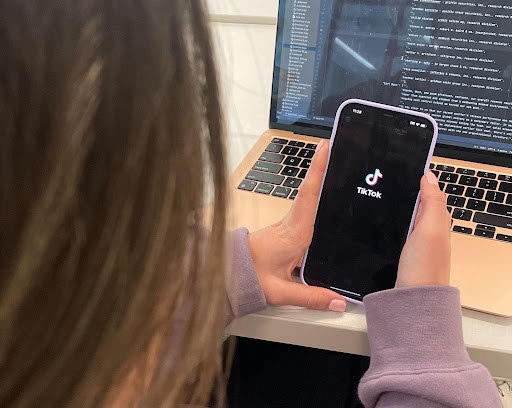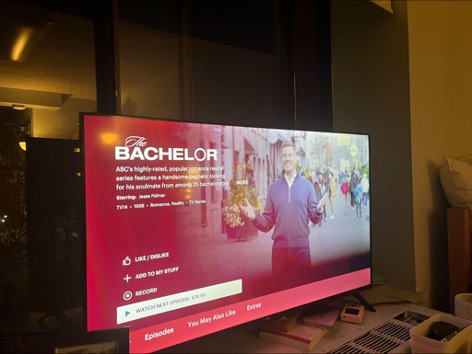The TikTok Ban: Why The RESTRICT Act is Terrifying
The following represents the opinion of the student reporter and does not represent the views of Loyola University Maryland, the Greyhound, or Loyola University’s Department of Communication.
I’ll start off by saying that I believe TikTok is detrimental to the youth of our society. I believe the app may be responsible for future mental health issues within my generation and the generation below it. The constant stream of different videos, all ranging in length, will result in a sharp drop in attention spans for adolescents, and the app’s algorithm is dangerously prone to forcing adolescents into echo chambers.
So, when I saw that there was a TikTok ban being floated around in Congress, naturally I was a bit more receptive than most about the legislation being passed. However, when I started actually investigating the contents of the proposed bill, I quickly realized that the implications of this bill are far worse than I initially thought.
The RESTRICT Act, which hilariously stands for The Restricting the Emergence of Security Threats that Risk Information and Communications Technology Act, uses TikTok as a scapegoat to ban virtually any piece of technology deemed a threat to national security. Here’s what the proposed legislation establishes:
The Department of Commerce will identify information and communications technology products that a foreign adversary has an interest in, which pose an “unacceptable risk to national security.” The current adversaries listed are the usual suspects, such as China, Iran, Russia, North Korea, and more. These adversaries are selected via a subcommittee that has little oversight. The population is not allowed to vote people into their roles on the subcommittee, and the subcommittee does not need to disclose their meetings to the public.
The language surrounding the information and communications products is very vague, but it includes desktop applications, mobile applications, gaming applications, payment applications, “web-based” applications, and telecommunications equipment. Telecommunications equipment is especially important to note, as this includes modems, routers, and home cameras. The products and services must have at least one million users or units in America.
Here’s the kicker: if you are found using these products with knowledge of their illegality, you can be fined a minimum of $250,000 and face imprisonment. There is also language within the bill that touches on virtual private networks, otherwise known as VPNs. VPNs are used to encrypt a user’s internet traffic and disguise their online identity. Therefore, it makes it difficult for third parties to track you online and access your data. If a user is found using a VPN to circumvent a ban on an app, there is a minimum imprisonment of 20 years and a minimum fine of $250,000. If the user is found to have knowingly used the VPN to access banned content, the minimum fine is $1 million.
Think about that for a second. If TikTok is banned under this bill, and you are found guilty of still accessing it, you potentially face 20 years in prison and a $1 million fine. That is a ludicrous thought. To understand the implications of this bill’s passage, first, you need to understand what Tencent is.
Tencent is a Chinese multinational media conglomerate that is a majority investor in many video game publishers, social media websites, and entertainment companies. Some companies that Tencent invested in include the creator of Fortnite (Epic Games), Discord, Ubisoft, Activision Blizzard, (which is the publisher of Call of Duty,) Reddit, Universal Music, and Reddit.
Now Tencent and the owner of TikTok, ByteDance, have come under scrutiny in recent years due to a law in China called the Cybersecurity Law of the People’s Republic of China. Under this law, specifically Articles 35 and 37, technology companies that conduct business outside of mainland China are legally required to turn over any data collected on their services or platforms.
So, if the RESTRICT Act is passed, I would bet money that Tencent investments as well as TikTok would be the first to go. However, another uncertainty with this bill is whether technology manufactured in adversarial nations falls under the jurisdiction. With regard to telecommunications equipment, many popular smartphones, home video systems, and more are manufactured in places such as China. The question then becomes the following: Would the subcommittee ban these products outright, force the companies to manufacture these products elsewhere, or use the bill as justification to “monitor” these products?
In my opinion, this is where the bill becomes dangerous. If you are unfamiliar, the United States has a history of spying on its citizens through their own individual telecommunications devices. In the aftermath of 9/11, Congress quickly passed a bill called the USA/PATRIOT Act, which vastly overhauled the nation’s surveillance laws. The PATRIOT Act expanded the government’s ability to spy on its citizens. Specifically, it increased the ability for the FBI to access records, enact secret searches, larger intelligence searches, and most infamously, the ability to do “trap and trace” searches. Essentially, the government now had the ability to wiretap all US citizens, as well as citizens of other nations, without probable cause. The government no longer had to show evidence that subjects of these searches were “agents of a foreign power,” which prior to the enactment of this law, was necessary to protect American citizens.
This bill gained international attention in 2013 when an NSA subcontractor named Edward Snowden leaked the true nature of this bill to the public. The bill was found to have violated the First Amendment and Fourth Amendments, regarding unlawful search and seizure and free speech, and Edward Snowden is currently an international fugitive wanted for violation of the Espionage Act of 1917.
The RESTRICT Act’s vague wording on telecommunications equipment can open the door to mass government monitoring of home devices. Under The PATRIOT Act, the only telecommunications equipment available during that time were cell phones and landlines. Nowadays, people have home cameras, TVs, and more, all of which have complete access to the Internet. The RESTRICT Act specifically states that it gives the federal government the ability to monitor equipment and services produced by adversarial nations, alongside the ability to ban them. So, is this bill essentially an updated version of The PATRIOT Act, giving the government the ability to spy on every device we currently own? To me, yes it is.
In an age where tensions are heightened between the United States and China, this bill could give the subcommittee the ability to deem users of products administered by Chinese companies “agents of foreign power,” and charge them with audacious fines and prison sentences. The language of this bill is far too vague to give the necessary oversight so that rights are not violated. However, just because the federal government will have this power does not mean that it will actually use it. But, the idea of them having this power is insane to me.
I am not the only person voicing frustration with this bill. Although support for the bill is bipartisan, people on both sides of the aisle have concerns regarding it. The one that stood out the most for me was Tucker Carlson playing a video of Rep. Alexandria Ocasio Cortez (D) explaining her issues with the bill, and then agreeing with her. If Tucker Carlson and AOC are agreeing with one another, you know that there is a real issue going on.
Right now, the bill is simply proposed legislation. However, because the support for this bill is bipartisan, there is a chance it could be passed. On top of this, President Biden has stated that he wants to have TikTok either sold to an American company or ban it nationwide. But, it is clear that TikTok is currently a scapegoat for more dangerous and far-reaching laws to be instated in our country. I believe that regulation of the app is necessary to protect the mental development of children and adolescents, who are exposed to virtually whatever they want with no limitations. The RESTRICT Act is not the way to do it though.
I believe that every American has a duty to voice their concerns regarding legislation that they do not agree with. If you believe that this bill is as dangerous and unlawful as I do, the best thing that you can do is call your congressional senators and representatives.















































































































